Five Freed Female Prisoners Call For Release Of Other Iranian Detainees
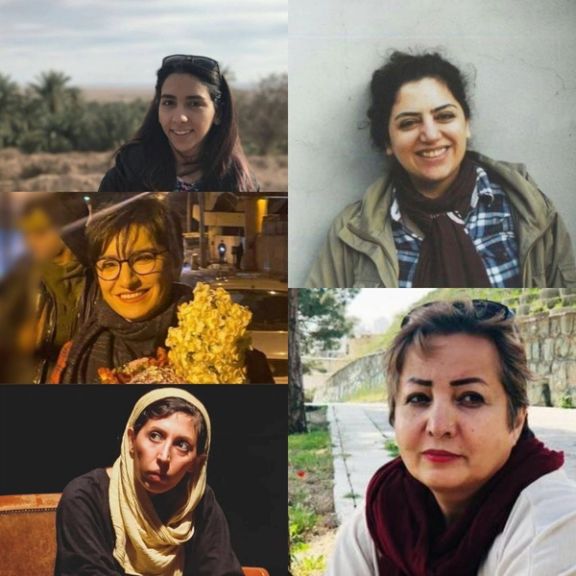
Five female Iranian prisoners, who have just been freed, have demanded the release of all female political prisoners, emphasizing that "the day of freedom is close."

Five female Iranian prisoners, who have just been freed, have demanded the release of all female political prisoners, emphasizing that "the day of freedom is close."
In their statement, the five women said solidarity shown by “the freedom-loving people and youths of Iran” was the main reason for the release of many political prisoners in the past days.
During recent days several reports have been published about the release of a number of political and civil activists, but some observers call it a "selective amnesty".
Alieh Mottalebzadeh, Raha Asgarizadeh, Noushin Jafari, Maliheh Jafari and Hasti Amiri further noted that the "continued support of the people and the efforts and persistence of the international community" are effective factors that can lead to the release of all male and female political prisoners.
In January, thirty female political detainees in the notorious Evin prison in Tehran, also signed an open letter demanding an end to the "unjust sentences for prisoners" and their execution.
“We, the political and ideological prisoners in the women’s ward of Evin Prison, demand an end to the execution of protesters and an end to unjust sentences of prisoners in Iran,” they said in a petition.
In more than four months, over 500 citizens were killed by government agents, dozens of whom were children. In the meantime, about 20,000 protesters were also arrested.
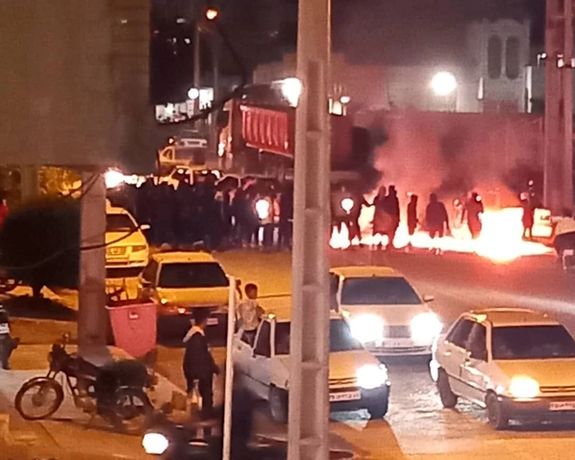
After a period of relative calm across Iran, Thursday was another action-packed day for the Iranians who are holding regular antigovernment protests for about five months.
People across the country had planned for the Thursday protests since at least a fortnight ago as it marked the 40th day after the execution of Mohammad-Mehdi Karami and Mohammad Hosseini, two of the four Iranians who were hanged for their participation in antigovernment rallies.
According to videos on social media, the February 16 protests were held in several cities with people chanting slogans against the regime and its ruler Ali Khamenei, whom they call a “dictator”. Protesters responded to calls by grassroot activists that have mobilized thousands of protesters in several towns and cities during the current unrest, and held gatherings at main streets and squares of their cities in evening hours.
Amid a tense presence by security forces, people in several neighborhoods of capital Tehran, the religious city of Mashhad in the northeast, central cities of Arak and Esfahan (Isfahan) and Kurdish majority city of Sanandaj and many others held protest rallies. During their show of solidarity, they chanted the main slogans of the current wave of protests, ignited by the death in custody of 22-year-old Mahsa Amini. “This is the year of blood, Seyyed Ali (Khamenei) will be gone,” and “Women, Life, Freedom,” chanted the protesters.
The cities of Ahvaz and Izeh in Khuzestan province, Rasht in Gilan, and some cities in Hormozgan were also scenes of protests on Thursday.
Gatherings were also big in the city of Karaj, near the capital, the hometown of the two protesters, Karami and Hosseini, who were executed 40 days ago.
The 40th day of a loved one’s death – as well as the seventh day -- carries immense cultural significance in Iran, and in case of an unjust killing, the occasion turns into public mourning and fuels angry protests.
Karami and Hosseini were arrested in Karaj during demonstrations on the 40th day of another victim, Hadis Najafi. Holding such events is reminiscent of a similar turn of events 44 years ago, during the Islamic revolution against monarchy that culminated in the overthrow of the Pahlavi dynasty under Shah Mohammad Reza Pahlavi, and the establishment of the Islamic Republic in 1979. Marking the 40th day for people who were killed during the revolution turned into fresh protests that fueled the movement.
The Thursday demonstrations occurred only one day after Supreme Leader Khamenei bragged about the turnout of government sponsored celebration on February 11 to mark the establishment of the regime, saying "people literally created an epic across the country" in supporting the Islamic Republic. A day later, the people were calling for his ouster in multiple cities.
In addition to nationwide protests, Iranian diaspora communities have also planned another protest rally for February 20 outside the European Parliament in the Belgian capital Brussels. The gathering is meant to call on the European Union countries to designate the Revolutionary Guard – or the IRGC – as a terrorist organization. Thousands of Iranians from all over Europe held a massive rally in Strasbourg in January to pressure the European countries to list the IRGC.
Iranians staged mass rallies in dozens of cities across the world calling for the overthrow of the Islamic Republic on Saturday [February 11], concurrent with the regime-sponsored events inside Iran to mark the 44th anniversary of the Islamic Republic in 1979.
In their historic joint event in Washington on the eve of the rallies on February 10, eight prominent opposition figures held a joint forum, signaling the emergence of a leadership council in the diaspora to campaign for international support in favor of Iran’s protest movement. They also called for support from democratic countries to change the regime in Iran and establish democracy.
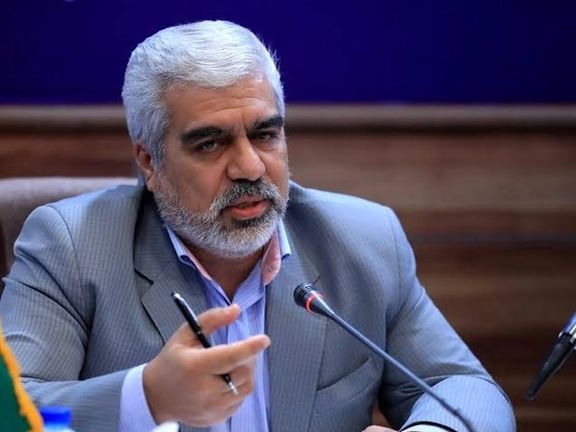
The journalists who reported a case of sexual abuse of several minors at a football school in northeastern Iran have been banned from work for six months.
The chief prosecutor of Iran's Khorasan Razavi province, Mohammad-Hossein Doroudi, still refrains from naming the club but according to reports the scandal took place at a sports school in the religious city of Mashhad called “Namazgozaran,” literally meaning the ones who pray. The number of arrested whistleblowers is more than the suspects in the case. He did not mention whether or when a court session took place for the case.
The two journalists who broke the news were banned from work for six months, which is exactly the sentence given to the coach, who is accused by the families of the boys of sexually abusing their children and – according to unconfirmed reports – filming them. Another journalist and an official of the city’s Sports and Youth Organization were also given sentences over the case.
The prosecutor has not elaborated on the case and the sentences, as is the norm in the Islamic Republic when the scandal is very big or when the accused are connected to high-ranking officials.
The prosecutor, who had earlier warned the families not to speak to the media, said, "According to the investigation, no document and proof of physical assault by the coach at this football school has been presented to the judicial system and nothing has been proven." But he did not explain why the caich was suspended for six months.
In January, Sports Minister Hamid Sadjadi said he had ordered an investigation following reports of sexual abuse. According to the Iranian official news agency, IRNA, a former media manager for the Shahr Khodro football team said on social media in January that the parents of 15 trainees from had filed a complaint against the club and coaches for sexual assault on their children.
The incident made it to the media when Shahrara daily, which is affiliated to Mashhad municipality, reported that “families of the children had gathered in front of the headquarters of the provincial football organization to protest this tragedy.” Since there was no follow-up by the authorities, the families were forced to publicize the case through the media, the daily added.
During a press conference late in January, Judiciary Spokesman Masoud Setayeshi, who was asked about the case, said, "We are investigating what is the motive for publishing such news."
Sexual abuse has made football schools a serious threat for children and teenagers. Reports say even some mothers of the children receive sexual offers from the coaches and officials of these schools.
Reza Torabian, a former football player, had earlier said that “Some officials of football schools ask the single moms to have sex in return for letting their kids play in famous teams.”
Sexual abuse of minors in football schools and other institutions is usually not reported by officials, but in the last two decades, Iranian media have published numerous reports of such cases.
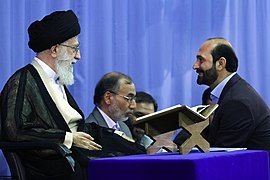
One of the cases that was internationally covered was the case of Supreme Leader’s "favorite Quran reciter" Saeed Toosi, who was accused of "sexually abusing underage trainees." In October 2016, reports revealed that Toosi sexually abused 19 of his prepubescent Quran students over the past years.
The Islamic Republic authorities usually prefer to detain journalists who spill the beans in scandalous cases, as they did in the case of Mahsa Amini’s death in hijab police custody, an event that triggered the ongoing antiregime protests. The current wave of rallies has been described as the boldest challenge against the clerical regime so far. In a new book, two Iranian academics argue that Iranians have lost trust in the regime, which is perceived as inefficient and mired in discriminatory behavior.

Canadian Journalists for Free Expression (CJFE) has presented its award to Niloufar Hamedi and Elahe Mohammadi, who have been imprisoned for five months, after publishing reports about the killing of Mahsa Amini in Iran.
The ceremony was held on Wednesday in Toronto, and Margaret Atwood, a Canadian writer and poet, presented the International Press Freedom Award to these two journalists in absentia.
Canadian Journalists for Free Expression supports those who show courage in seeking and reporting the truth.
For more than 40 years, the CJFE has championed free media and the role it plays in creating a just and equitable society. The organization supports and upholds the rights of all global citizens to hold leaders to account, to ask hard questions, and to use their voices to speak the truth.
Shahram Rafizadeh, an Iranian journalist, received the award on behalf of the two journalists symbolically.
While Hamedi and Mohammadi are imprisoned for first publishing reports about the death and funeral of Mahsa Amini, Iran’s Foreign Minister Hossein Amir-Abdollahian recently claimed in an interview with America’s National Public Radio that no journalist was arrested during Iran protests.
According to the latest reports by the Iranian Journalists Association, several reporters who were arrested at the beginning of the protests, are still in prison. In total, nearly 70 journalists were arrested.
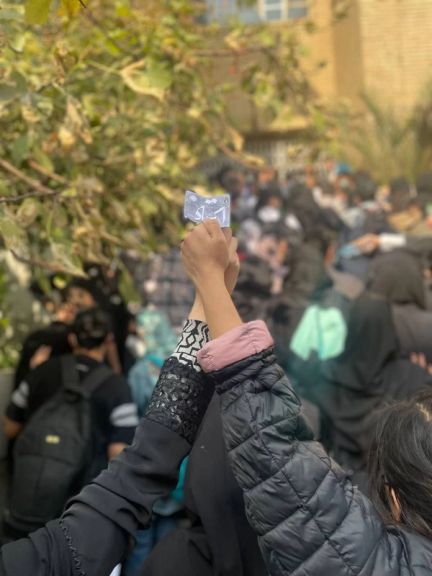
Although the Iranian regime claims tens of thousands of inmates have been pardoned by the Supreme Leader, the Student Councils Union says many students have been expelled and suspended following recent protests.
The Telegram channel of the Student Councils Union announced that students of Tarbiat Modarres University in Tehran are routinely summoned by the intelligence ministry.
"In an illegal process and without having a lawyer or holding a hearing, they forced the students to sign a letter prohibiting them from participating in future protests," noted the Union.
It further criticized Khamenei, saying “when the pardoner is the criminal himself, how can he pardon others?”
According to this Union, Fatemeh Mahzoun, a student of Bojnord University of Medical Sciences in the northeast, was expelled from the university and sentenced to five years of exclusion from studying at other universities.
Meanwhile, a young elementary school teacher in the northern city of Qaemshahr has been expelled after she played a song for the students who sang along. Education ministry officials said the license of the school would probably be canceled too.
During the anti-government protests in Iran following the death in custody of Mahsa Amini, which is still going on after five months, the students were violently suppressed.
According to the US-based Human Rights Activists News Agency (HRANA), at least 720 students have been arrested so far with some being sentenced to long-term imprisonment.
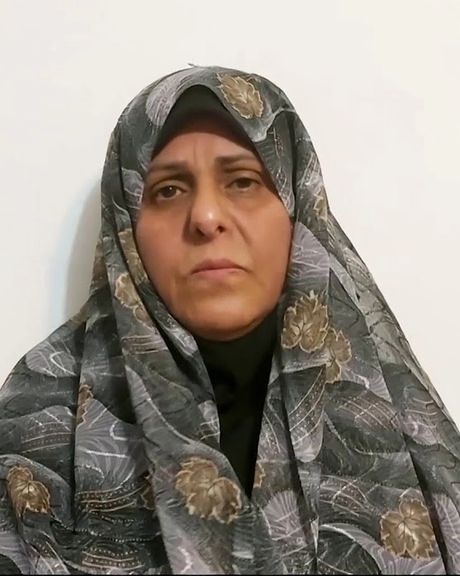
Fatemeh Sepehri, an activist opposed to the Islamic Republic, has warned the authorities that she and millions of other people are fed up with their oppressive actions for 44 years.
In a petition from Mashhad prison in the northeast of Iran, Sepehri said the nation is tired of embezzlement, corruption, aggression and warmongering, and they can no longer tolerate such crimes and they will not stop until the country is taken back from [clerical rulers].
Sepehri, one of the signatories of a statement requesting Supreme Leader Ali Khamenei's resignation in 2019, published her petition on Wednesday.
She noted in the letter that after the martyrdom of her husband in 1980s during Iran-Iraq war, the regime agents took all her belongings.
Sepehri further added she was arrested at her home by Khamenei's agents in the Ministry of Intelligence, and her pension was "cut off upon the order of Khamenei".
"I was in solitary confinement for 31 days and due to my deteriorating health, I was transferred to hospital," she emphasized.
Despite Sepehri's need for medical care, her detention order has been extended three times.
Earlier, her brother announced she is sentenced to one year in prison and a fine of about 500 USD.
Two years ago, Sepehri was released from Mashhad's Vakilabad prison after nine months of detention, but she released a video, saying "I will not remain silent and will stay on this path."